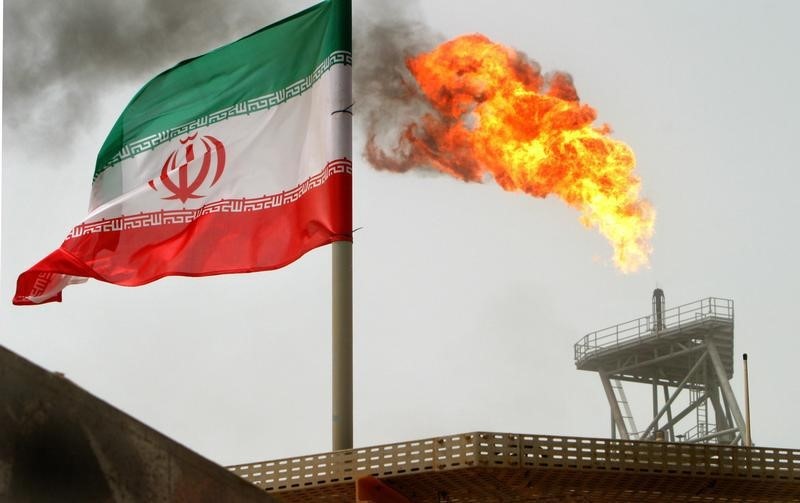Investing.com-- Oil prices fell Friday, handing back the earlier sharp gains after Israel reported launched strikes against Iran, elevating the already fraught tensions in the Middle East.
At 08:50 ET (12:50 GMT), Brent oil futures fell 0.5% to $86.65 a barrel, while West Texas Intermediate crude futures dropped 0.3% to $82.47 a barrel.
Middle East tensions back in focus after Iran explosions
Both benchmarks had soared 3% earlier Friday after reports of missile strikes in Iran, with Iran's Fars News Agency saying explosions were heard in Isfahan in central Iran, in parts of southern Syria and in parts of Iraq. ABC news reported that U.S. officials said Israel had retaliated against Iran.
Both contracts reversed a bulk of their losses for the week, but were still set to end the week mildly negative.
Israel's likely retaliation, around a week after Iran launched a missile and drone strike against Israel last week, which was in turn retaliation for an alleged Israeli strike on an embassy in Damascus, marks an escalation in the Middle East conflict.
That said, the quick surrender of early gains suggests the market doesn't believe this to be a severe escalation, with Tehran stating that nuclear facilities were undamaged.
Iran recently said it could reconsider developing a nuclear weapon if Israel attacked the country’s nuclear sites, which it said have so far been used only for peaceful, power-generating purposes.
UN reports recently showed Iran was enriching uranium up to 60%, which was more than levels required for commercial power generation. But it was also below the 90% enrichment level required for an atomic bomb.
Goldman lifts oil forecasts
"After rallying sharply to just over $90/bbl on rising geopolitical risks, Brent prices have declined to $87/bbl," said analysts at Goldman Sachs (NYSE:GS), in a note.
"We still see a $90/bbl ceiling on Brent in our base case of non geopolitical supply hits," the influential investment bank said. "The reasons are that high spare capacity and higher prices will likely lead OPEC+ to raise production in Q3, inventories remain flat over the past year, and prices are already triggering stabilizing responses, including rises in OPEC exports and lower crude demand from the US SPR and refineries."
That said, the bank lifts its floor for Brent to $75 a barrel, from $70, saying it assumes only a gradual normalization in the risk premium, and think that OPEC will manage to keep spot prices above long-dated prices through a smaller unwind of production cuts than we assumed before.
Additionally, "we still see value in long oil positions given significant portfolio hedging benefits against geopolitical shocks, and an attractive 10% annualized roll yield."
It also lifts its Brent forecast to $86 a barrel for the second half of 2024, versus $85 prior, and to $82 a barrel for 2025, from $80.
Oil still set for weekly losses
Oil prices are set for hefty weekly falls, on the back of a stronger dollar, following strong U.S. economic data and warnings from a slew of Fed officials that interest rates will remain higher for longer.
A stronger dollar pressures crude demand by adding a currency-related premium for international buyers.
The prospect of higher-for-longer rates factors into fears that global economic growth will be stymied by tight policy, which also bodes poorly for oil demand.
Traders were seen largely pricing out expectations for a June rate cut by the Fed.
(Ambar Warrick contributed to this article.)
